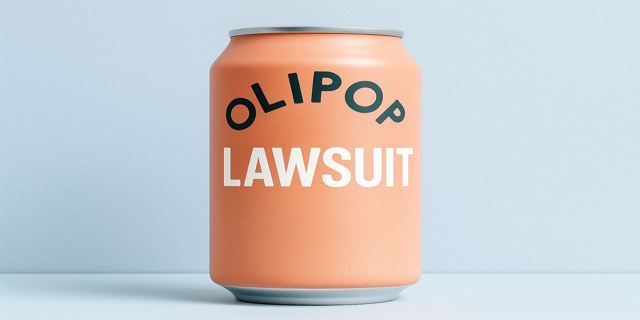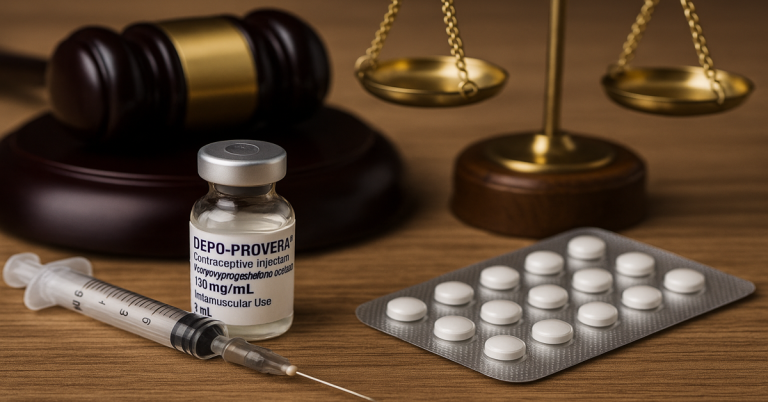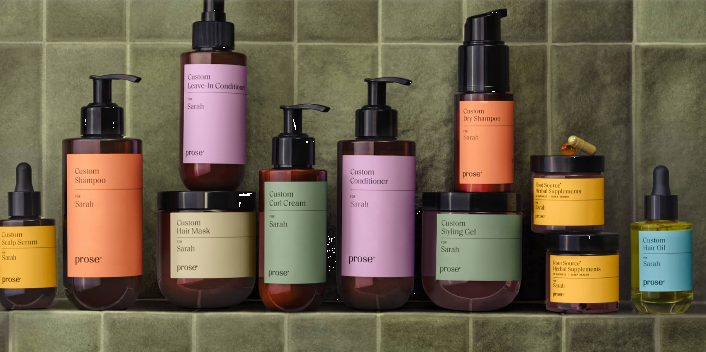Olipop is a rising soda brand. It promises digestive health support and less sugar than classic sodas. Shoppers love its nostalgic flavors and modern health image. The Olipop lawsuit now challenges that promise. The case alleges that Olipop has exaggerated its gut health claims. It also questions the source of its advertised fiber. Consumers care because Olipop is everywhere. National chains stock it. Millions of people trust the label. The lawsuit asks one big question. Does Olipop deliver what it advertises? The answer could affect the entire functional beverage market.
What Is Olipop?
Olipop launched in 2018, and the founders designed it as a “new kind of soda.” They wanted soda lovers to enjoy health-focused drinks. The company blends familiar flavors with plant-based ingredients. Options like Root Beer, Cream Soda, and Vintage Cola appeal to nostalgic soda enthusiasts. Tropical Punch and Strawberry Vanilla appeal to health-conscious buyers.
Marketing highlights fiber and gut support. Each can lists 9 grams of fiber. Ads claim digestive health benefits from the addition of prebiotics. Shoppers embraced the pitch. Retail giants like Walmart, Target, and Whole Foods now sell Olipop. The brand has celebrity investors and strong social media buzz. The lawsuit now questions if the claims live up to the hype.
Timeline of the Olipop Lawsuit
The legal issues involving Olipop did not unfold the way many online articles suggest. There was no confirmed consumer class action over gut health claims in early 2025. Instead, the verified legal action followed a different path under California law.
The primary case was a California Proposition 65 enforcement lawsuit, which focuses on chemical exposure warnings — not marketing promises. Here’s how the case actually progressed.
| Date | Event | Impact |
|---|---|---|
| Jan 2024 | Proposition 65 60-day notice issued | Olipop formally notified of alleged chemical exposure concerns |
| Oct 2024 | Lawsuit filed in California (Alameda County) | Case moves from notice stage to court |
| Jun 2025 | Settlement agreement reached | Parties agree to resolve without trial |
| Aug 2025 | Court enters judgment pursuant to settlement | Case officially concluded |
| Present | No active consumer lawsuit over gut health claims | No hearings or trials pending |
This timeline reflects court records and state regulatory filings, not speculation or social-media reports.
The Core Allegations in the Olipop Lawsuit
The lawsuit raises three key concerns.
Misleading Gut Health Benefits
Olipop promotes digestive balance and microbiome support. Ads suggest regular drinking improves gut health. Lawyers argue these claims overstate the science. Prebiotic fibers may support digestion. However, research shows benefits depend on type, dose, and diet. A single can may not provide meaningful health changes. The lawsuit says Olipop exaggerates effects. Consumers may think they get more benefit than reality supports.
Fiber Content Controversy
Each can displays 9 grams of fiber. That number looks appealing to fiber-deficient shoppers. The lawsuit questions the source. Most fiber comes from inulin. Inulin is a processed ingredient that counts on labels but may not act like whole-food fiber.
Experts argue that inulin lacks the proven benefits of fruit or grain fiber. Some people also report bloating or stomach upset. Critics say Olipop does not clearly explain the difference.
California Consumer Laws
The lawsuit uses California’s strict laws. Proposition 65 requires warnings about chemicals linked to cancer or reproductive harm. Even trace amounts trigger it.
The Unfair Competition Law bans misleading advertising. Lawyers say Olipop broke this rule. Marketing language suggested stronger health effects than the science supports. Together, these laws give weight to the case. Courts in California enforce them aggressively. Companies often settle rather than risk trial.
Why This Lawsuit Matters to Consumers
This case goes beyond one soda brand. It affects trust across the wellness drink industry. Consumers pay premium prices for health claims. They expect accurate, transparent information. False or exaggerated promises damage that trust.
Olipop is not cheap. Buyers spend more expecting better value. If claims fall short, consumers waste money. The lawsuit reminds people to look closely at labels. It also pushes companies to ensure science matches advertising.
Company’s Shares and Market Position
Olipop is privately held, not publicly traded. That means no stock price reacts to news. However, investor confidence still matters. Celebrity backers and venture firms funded Olipop’s growth. Lawsuits can reduce future investments. Investors hesitate when legal risks threaten growth.
Retail relationships also face pressure. Large chains may reduce shelf space if trust erodes. That can hurt sales directly. Even without a stock price, Olipop’s valuation depends on brand trust. The lawsuit places that at risk.
A Quick Look at California’s Proposition 65 and Consumer Laws
California consumer protection laws are strict.
Proposition 65 requires warnings if products contain listed chemicals. Even tiny amounts matter. Businesses must notify consumers about potential risks.
The Unfair Competition Law bans misleading ads. Courts apply a simple test. Would a reasonable consumer be misled?
The Olipop lawsuit uses both rules. If successful, Olipop could face fines, label changes, and reputational damage.
The Bigger Picture: Functional Beverages and “Health Halos”
Olipop is part of the functional beverage trend. This category includes kombucha, collagen waters, and electrolyte drinks. Many use a “health halo.” This means highlighting one ingredient to make the product appear healthier. Brands spotlight probiotics, antioxidants, or detox claims. The halo hides sugar, additives, or weak science. Consumers focus on the highlighted benefit. They often ignore less appealing details. The Olipop case highlights this pattern. A ruling could pressure all wellness drinks to use more cautious language.
Effects on the Prebiotic Soda Market
The lawsuit affects more than Olipop. Competitors like Poppi and Health-Ade may also face scrutiny. Prebiotic sodas rely on digestive health claims. The case could force clearer wording across the category. Labels may shift from bold promises to cautious statements. Retailers may also rethink product placement. Health-focused aisles may shrink if consumer trust declines. Investors may shift funding away from risky beverage startups. The case highlights how one lawsuit can shake an entire market segment.
How Consumers React to the Case
Consumer reactions are divided. Many feel betrayed. They trusted Olipop’s promises and paid more for health benefits. They now question the brand’s honesty.
Some defend Olipop. They say less sugar is still better than Pepsi or Coke. Even if gut health claims are weak, the soda remains a lighter option. Social media debates highlight larger concerns. Shoppers now question kombucha, prebiotic shots, and other wellness drinks. The case sparks skepticism across the industry.
Settlement Details: What Actually Happened
The Olipop lawsuit did not end with a consumer payout or a marketing-fraud verdict. Instead, it concluded through a Proposition 65 settlement, a common outcome in California regulatory cases.
Under the settlement terms:
Olipop agreed to pay $75,000 total, covering civil penalties and legal costs.
The company must ensure products sold in California either:
Meet Proposition 65 safety thresholds, or
Carry appropriate warning labels if required.
No admission of wrongdoing was made.
Importantly, this settlement does not state that Olipop products are unsafe. Proposition 65 cases often focus on extremely low exposure thresholds, not actual consumer harm.
No refunds, recalls, or consumer compensation programs were ordered as part of this resolution.
Current Status of the Olipop Lawsuit (As of Now)
As of now, the Proposition 65 case against Olipop is fully resolved.
There are:
No ongoing hearings
No pending rulings
No active consumer class actions over fiber or gut health claims
Separately, Olipop is involved in a trademark lawsuit that it filed against another company for alleged brand infringement. That case is unrelated to product safety, nutrition, or consumer health claims and does not affect shoppers directly.
For consumers, this means:
Olipop products remain legally available nationwide.
No court has ruled that Olipop’s gut health claims are fraudulent.
No settlement requires refunds or label changes related to fiber marketing.
Why This Clarification Matters
The confusion around the Olipop lawsuit shows how easily different legal issues get merged into one narrative. Regulatory enforcement, trademark disputes, and consumer class actions are very different — but online coverage often blends them together.
For readers and shoppers, the key takeaway is simple:
Olipop faced a regulatory compliance case, not a proven deception ruling.
The case is closed, not ongoing.
Claims about hearings, expert testimony on inulin, or settlement talks over gut health benefits are not supported by court records.
What a Consumer Should Do if Class Action Settlement Happens
Class action settlements often involve compensation. Consumers who bought Olipop could qualify.
First, consumers should track official announcements. Courts or law firms will publish details.
Next, consumers may need to file claims. Proof of purchase could be required. Receipts, credit card statements, or even loyalty app records may help.
Compensation usually comes in the form of cash or vouchers. Amounts vary depending on settlement size and claim volume.
Consumers should also evaluate future purchases. Settlements may improve label accuracy, but skepticism is healthy. Read future packaging carefully.
What You Can Do as a Consumer
Consumers can take steps to protect themselves.
Read nutrition labels carefully. Look at sugar content, fiber sources, and ingredient lists. Do not rely only on marketing slogans.
Understand fiber types. Fiber from fruits, vegetables, and grains delivers proven health effects. Added fibers like inulin may not.
Treat health claims cautiously. Phrases like “supports gut health” do not guarantee benefits. They are broad and often vague.
Compare costs and value. Ask if the price matches the health benefits. Whole foods may offer more fiber and nutrition for less money.
Balance your diet. Functional drinks can complement meals, but they should not replace whole foods. Fruits, vegetables, and grains remain essential.
These steps help you make smarter, healthier choices.
Frequently Asked Questions (FAQs)
1. What is the Olipop lawsuit about?
It accuses Olipop of misleading consumers. The focus is on fiber claims and gut health benefits.
2. Does Olipop really contain 9 grams of fiber?
Yes. Most comes from inulin. Experts say inulin may not provide the same benefits as whole-food fiber.
3. Is Olipop safe to drink?
Yes. The lawsuit does not allege contamination. It only questions marketing accuracy.
4. How does Olipop compare to regular soda?
Olipop has less sugar than Coke or Pepsi. It contains added fiber, though the benefits remain disputed.
5. Could other brands face lawsuits?
Yes. Functional beverages that exaggerate claims may face similar legal action. This case could set a precedent.
Conclusion: What This Means for You
The Olipop lawsuit challenges marketing in the wellness drink industry. It reminds consumers that flashy claims may not equal real benefits. Shoppers deserve honesty. They pay extra expecting value. They should not settle for vague or exaggerated promises.
The case may push companies toward clearer, more accurate advertising. That helps everyone make informed decisions. Until then, read labels closely. Question big claims. Choose whole foods first. Functional drinks can add variety, but real nutrition comes from balanced meals.
Disclaimer: This article is for informational purposes only and does not constitute legal or medical advice. Lawsuits and regulatory actions may evolve over time. Readers should consult official court records, qualified legal counsel, or healthcare professionals for guidance specific to their situation.




